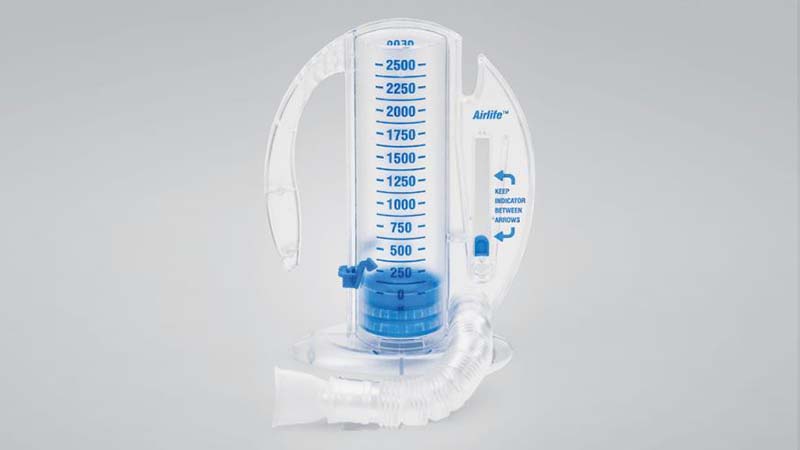Rehabilitation after Covid-19: An approach for better recovery
- 50 months ago
The coronavirus affects different people in distinct ways but it causes major damage to the lungs and respiratory system that can linger even after recovery.
A large number of COVID-19 patients are facing challenges especially those who are recovering late due to delays caused by the crisis and limited services. It may take a long time to recover lung functioning but it is possible through appropriate exercises, therapy, medication, and self-management.
Who requires rehabilitation?
- People who got "long-term COVID-19" in which symptoms of COVID-19 persist for weeks or months after initial infection.
- People who have recovered from a serious illness or have suffered from COVID-19 and developed heart or blood clotting complications.
- Individuals with impairments in memory or neurological disorders post COVID-19
- Someone who faced continued fatigue and stayed for a long period in the intensive care unit (ICU).
Breathing exercises for lung recovery
It is important to do exercises that use muscles to increase the stress on the cardiovascular system.
During the recovery phase from a lung infection, you should focus on strengthening the diaphragm and chest wall muscles that help you breathe.
If you received an incentive spirometer after discharge, make use of it. An incentive spirometer is a device designed to help open up your lungs after surgery or a lung illness. It enables a person to breathe deeply and slowly. It helps to keep your lungs active when you are recovering as if you were breathing on normal days.
How to use an incentive spirometer?

- Place the mouthpiece in the mouth. Let your lips have a firm hold of it but do not block it with your tongue.
- Breathe in slowly and deeply through your mouth and try to raise the pointer closer to the goal marker.
- If you feel troubled while inhaling, hold your breath, and wait for at least 3 seconds.
- Exhale normally
- Repeat the steps 10 times in an hour whenever awake or as told by your doctor.
- Clean the mouthpiece each time after use. If the mouthpiece is a disposable one, resist using it after 24 hours.
- Keep a record of the levels. This will help your doctor make sure your lung function is improving.
Mental health for emotional stability
You may experience a pang of guilt, anger, loneliness, develop feelings of vulnerability, and depression. However, it is important to know that these feelings are normal and you need not blame yourself for the same.
- Connect with your friends and family regularly. Have regular interactions with them via phone, video, or social media.
- Have a healthy diet, engage in regular exercises stated above, and get a good night's sleep to boost immunity and mood. Get at least 7 hours of sleep at night.
- If you feel emotionally blocked, seek professional support, talk to a certified therapist on The Wellness Corner.
- Avoid excess caffeine consumption during the afternoon. Also, avoid alcohol as compromises the body's immune system by interfering with REM sleep and can wake you up at night for frequent urination.
- Avoid blue light by turning off your mobile or laptop at least an hour before bedtime.
- Consider watching guided wellness meditation on Wellness TV before sleeping to calm your body.
- Track your mood on The Wellness Corner app to analyze patterns and changes in your behavior.
Rehabilitation can help in teaching effective strategies to the impacted person/relatives/caregivers so that they can improve cognitive functioning at the domestic end,
Pulmonary rehabilitation
Pulmonary rehabilitation is a program that focuses on improving your exercising potential to relieve symptoms like shortness of breath and improve the quality of life. It includes the set of activities that help you reinforce the chest muscles as you recover from the lung infection.
Walking is one of them. You can carry out walking in the following manner-
- Week 1: 5 mins, 5 times a day
- Week 2: 10 mins, thrice a day
- Week 3: 15 mins, twice a day
Sit upright as much as you can. Change positions regularly to avoid stiffness. If you have trouble breathing, try lying down on your stomach with pillow support.
Log your exercises (You can easily maintain that on The Wellness Coner app) to monitor your capabilities while doing any exercise.
Educate yourself - Many rehab programs offer education sessions to help you manage your illnesses.
- They help you understand your medical plan.
- If you’re a smoker, they’ll help with quitting
- Assist and provide a healthy diet plan
Bottom line
During recovery, patients face challenges that include impaired lung function, muscle weakness, impaired swallowing & communication that can decrease the quality of life and diminish independence in activities of daily living. Thus, rehabilitation and monitoring the health status are very important. Consult a doctor immediately if you face a problem in breathing, chewing, or experience severe muscle weakness. Additionally, a dietitian can help you curate a healthy diet plan to boost your immunity.








